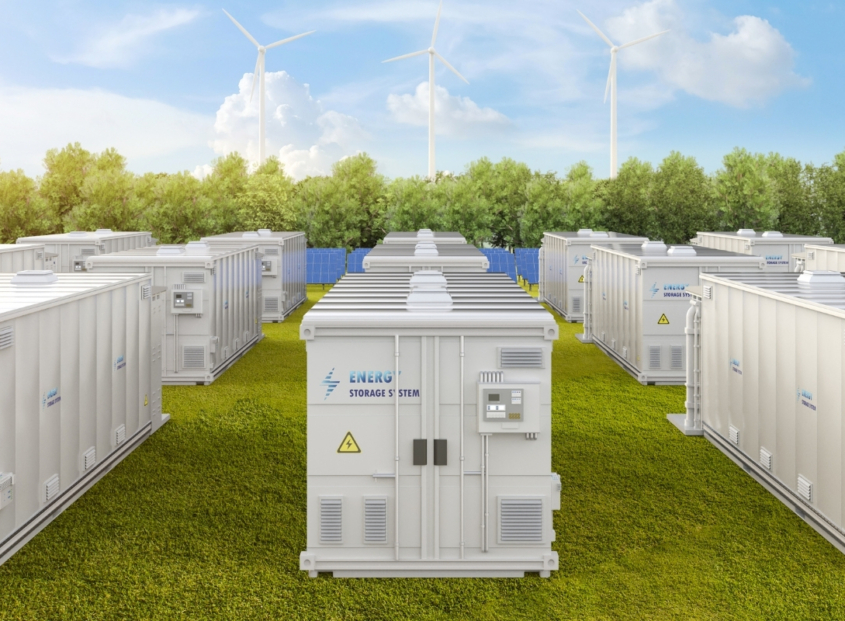2026 Trends in Industrial Electrification: Smarter, Cleaner, Faster
Energy demand in the Pacific Northwest is expected to double by 2046, fueled by rapid growth in data centers, electric vehicles, building electrification, semiconductor manufacturing, and green hydrogen production, an energy-intensive process that uses electricity to split water into hydrogen and oxygen.
In response, many industrial facilities are exploring electric systems as a way to meet future energy needs more efficiently. Electrification offers a path to lower operational costs, modernize infrastructure, and improve overall performance.
Electrification in Industrial Sectors: Trends & Tech
According to the American Council for an Energy Efficient-Economy (ACEEE), industrial electrification is gaining traction with manufacturers nationwide. In the Pacific Northwest, two trends stand out in transitioning to electrical energy in 2026 and beyond.
Clean Operational Systems in Pacific Northwest Manufacturing
Industrial heat pumps (IHP) are high-efficiency systems that transfer heat from one location to another by upgrading low-to-moderate heat for reuse in manufacturing processes. Some statistics report that electrical-based heat pumps can provide up to 90% energy-intensity reduction compared to traditional, industrial reboiler or condenser systems.
Advantages of IHPs
- Recycles waste heat: Captures and reuses low-grade thermal energy from industrial processes
- Reduces fossil fuel reliance: Shifts thermal systems to clean, electricity-based alternatives
- Cuts energy consumption: Improves efficiency across heating and cooling applications
- Lowers operational costs: Decreases utility expenses through more innovative heat management
Manufacturers are increasingly focused on electrifying low- to mid-temperature processes to improve energy efficiency and reduce costs. As these systems become more common, there’s a growing need for professionals who understand high-efficiency heat transfer systems, low-temperature process integration, and control strategies that support heat recovery and reuse. Developing these skills not only supports clients in meeting their sustainability goals but also strengthens their ability to deliver future-ready electrical solutions.
Thermal Battery Storage for Temperature-Intensive Industries
Unlike conventional batteries that store electricity, thermal energy batteries store excess energy as heat in materials with high thermal mass, such as graphite, molten salts, or engineered bricks.
This stored heat can be delivered on demand to support energy-intensive processes like drying lumber, where speed and high temperature needs are required. Thermal batteries can also be utilized in food and beverage manufacturing. The energy is stored during low-demand times or after-hours, then used during production times, thereby reducing food waste.
Advantages of Thermal Batteries
- Long-duration storage: Retains heat for days to months, ideal for variable renewable generation
- Lower cost and longer lifespan: More durable and cost-effective than lithium-ion alternatives
- Cleaner industrial energy: Supports decarbonization by storing heat from wind or solar sources
- High efficiency: Delivers thermal energy directly to industrial processes with minimal conversion losses
As thermal batteries become more common in industrial settings, implementing them effectively requires a solid understanding of heat transfer systems, high-temperature insulation, and the integration of renewable inputs into thermal outputs. These systems also call for close collaboration between electrical and mechanical teams to ensure performance and reliability.
Looking Ahead: 2026 & Beyond
To stay at the forefront of this transformation, electrical professionals are focusing on expanding their knowledge in areas such as advanced control systems, energy storage integration, and electrification of industrial processes.
Being part of this shift also calls for:
- Continuous skill development in emerging technologies
- Understanding industrial process integration
- Adaptability to rapidly evolving technical requirements
Staying informed creates opportunities for electrical professionals ready to embrace the cleaner, faster future of industrial operations in the Pacific Northwest.
Become Part of a Strong Network of Electrical Professionals
If you’re looking to join a strong, supportive community of electrical professionals in Oregon and Washington, or you’re already in the trade and want to take the next step in your career, there are great resources available. Visit our dedicated membership pages for the Oregon-Columbia Chapter of NECA or IBEW Local 48 to learn more.
SIGN UP FOR OUR NEWSLETTER



